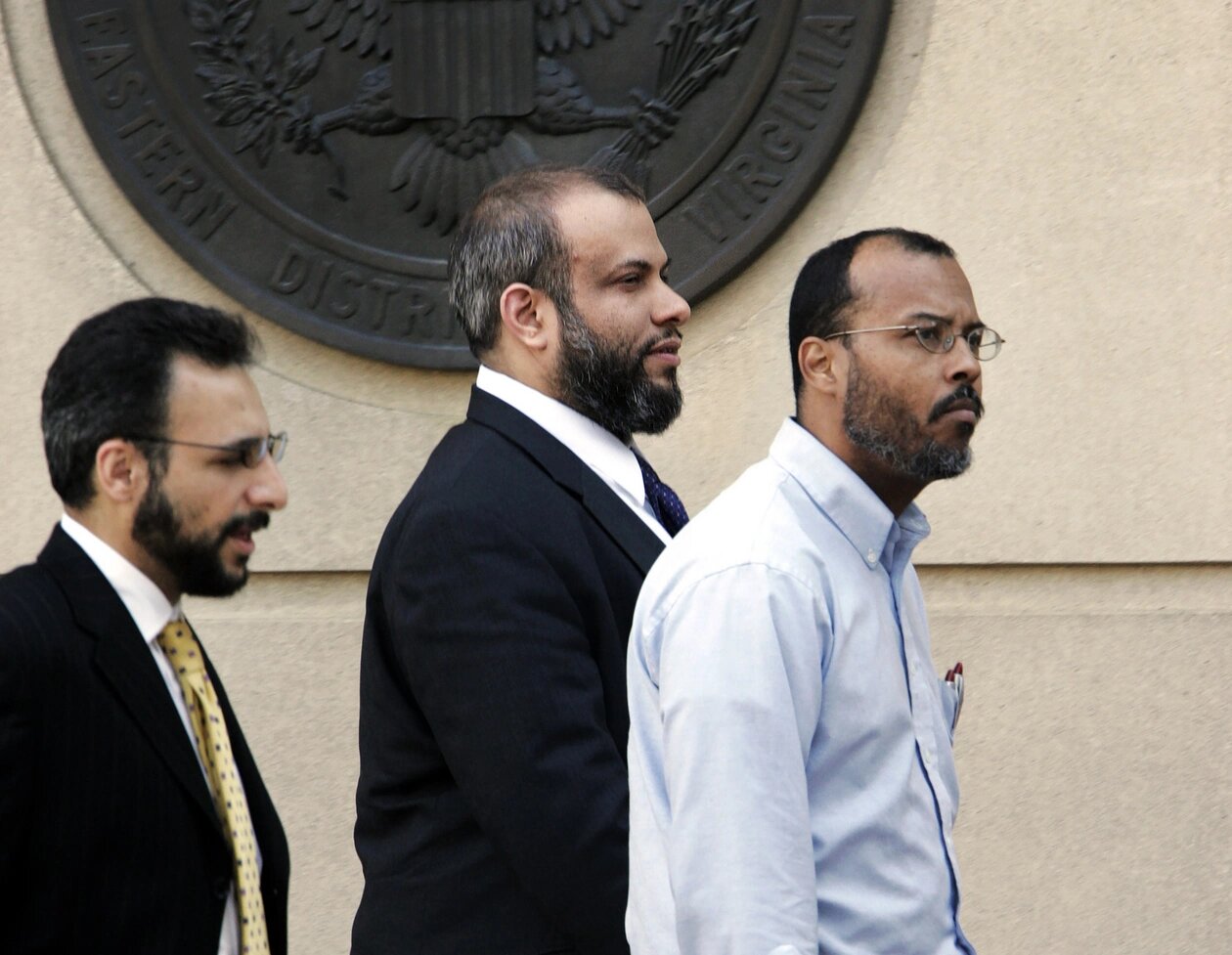Stephanie Thacker, an Obama appointee, said a convicted scholar’s speech in a terrorism case and Trump’s remarks sound “the same.”

It’s been almost five years since President Donald Trump stood on the Ellipse and exhorted his followers to march on the Capitol as lawmakers were preparing to certify Joe Biden’s election victory. But that jarring prelude to the Capitol riot is still resounding in the courts.
Two federal judges hearing an appeal Friday in a long-running terrorism case seized on that provocative example as they tried to divine the line between First Amendment-protected speech and the punishable act of aiding and abetting a crime.
“What if a large group of people, angry at Congress, gathered on the Washington Mall, some of whom have firearms, and are known to have firearms, and a leader stood in front of them, here, right in front of them, not in another country, and said, ‘Go down the street and fight like hell. I’ll be there with you,’” said Judge Stephanie Thacker, an Obama appointee on the 4th Circuit Court of Appeals.
Thacker raised Trump’s speech as federal prosecutor Gordon Kromberg tried to defend the 2005 convictions of Muslim scholar and cancer researcher Ali Al-Timimi for encouraging more than a dozen young men to travel to Pakistan for military training to prepare to defend the Taliban in Afghanistan against an expected U.S. attack after Sept. 11, 2001. A judge last fall overturned some of Al-Timimi’s convictions.
Kromberg declined to take a stance on Trump’s actions, but insisted Al-Timimi’s case differed because some of the Muslim scholar’s exhortations were delivered in a meeting where precautions were taken to keep it secret. “I take no position on what happens when a public speaker speaks on television to the world, as opposed to someone who knows that he’s doing something illegal, because he says, ‘Turn off the phones, close the shades,’” the prosecutor said.
But Thacker said Trump’s remarks seemed to cross the line, under the government’s theory.
“To me, it sounds the same. So, if what you’re advocating is a crime, then what I just said is a crime — may be a crime,” she said.
Trump’s statements at the Ellipse on Jan. 6, 2021, did form part of special counsel Jack Smith’s case charging Trump with involvement in a criminal conspiracy to overturn the results of the 2020 presidential election. Smith dismissed that case after Trump won the 2024 presidential race.
In 2022, a judge handling several civil lawsuits over the Jan. 6 riot rejected arguments by Trump’s lawyers that he was immune from legal action over his statements that day because they were protected by the First Amendment. U.S. District Judge Amit Mehta, an Obama appointee, ruled Trump’s awareness that some of his followers were armed, coupled with his fiery public remarks, might be enough to make him liable for inciting the riot. Those lawsuits are still pending.
During the argument session in Richmond, Virginia on Friday, both Judge James Wynn and defense attorney Geremy Kamens noted Trump’s actions were closer in time and physical distance than the crimes Al-Timimi was convicted of aiding. “In that instance, the criminal conduct or what actually happened was much closer than in this case,” said Wynn, an Obama appointee.
Al-Timimi was sentenced to life in prison in 2005 for crimes including soliciting treason in connection with cases often referred to as the ‘Virginia jihad’ or paintball cases, after a type of training undertaken by some of the defendants. He was released to home detention in 2020 due to the coronavirus pandemic and ongoing legal wrangling over his convictions.
